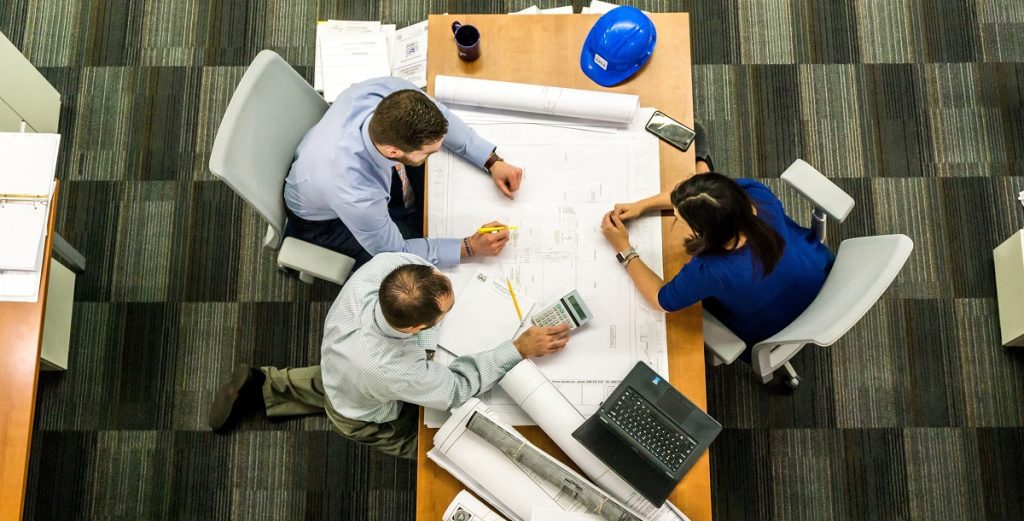Acing a project manager interview goes beyond just answering questions correctly; it’s about showcasing your unique strengths and how they align with the role. The HIGH5 strengths assessment can be an invaluable tool in this process, helping you identify and articulate your top strengths, such as strategic thinking or relationship building, which are crucial for project management success. By understanding your strengths profile, you can more confidently and authentically present yourself during the interview, demonstrating how your natural talents make you an ideal fit for the position.
Although hiring procedures vary, the questions are generally similar. Being prepared for these questions means you have the best chance of getting the job.
In this article, you will find recommendations on overcoming interview questions for a project manager and many examples of the sample tasks that may be given.

What Skills Are Important for the Project Manager Role?
When interviewing for project manager positions, employers and hiring managers typically assess a range of skills, including leadership, problem-solving, coordination, and communication. However, understanding your unique strengths can give you a significant edge. The HIGH5 strengths assessment helps identify your top talents, such as strategic thinking, relationship building, or execution, which are crucial for project management success. By leveraging this knowledge, you can articulate how your natural strengths align with the role’s requirements, demonstrating to potential employers not just your skills, but how your inherent talents make you an exceptional fit for the position.
They also aim to ensure that the candidate possesses proper knowledge of theories and practical underpinnings in project management.
Project management skills
A good project manager is one of the top qualities employers seek in a potential candidate. This includes good managerial skills, people, resource, and process management, and strong competence in problem-solving and decision-making.
Related: 10 Crucial Project Management Skills That Are Must-Have
Resilience to stress
One of the pain positions in which a professional is engaged today relates to project management. Hence, potential employees should be able to cope with pressure without cracking under it.
Leadership skills
Good leadership is essential for project managers as they must motivate their teams and drive them toward successful outcomes.
Time management
A good project manager should focus their time effectively to ensure that the jobs are done as scheduled.
Communication skills
Communication is a significant tool for proper project management. This should include the ability of candidates to ensure that they can articulate their thoughts well and make clear, concise contributions when interacting with team members, stakeholders, or any other individual handling a project.
Teamwork
Project managers must adopt an amiable attitude towards the public and subordinates, meaning they must develop successful relationships with their teammates.
Accountability and organization
Therefore, responsibility for outcomes should be associated with a particular group of project managers who will coordinate the activities to achieve the best results.
Problem-solving skills
Any project manager needs to be able to quickly identify problems, work out the answers, and be good at troubleshooting.
Pro Tip From HIGH5
Before your interview, take the HIGH5 strengths assessment to identify your top strengths. Then, prepare specific examples of how you’ve used these strengths in past projects. This approach will help you provide more compelling and authentic responses during the interview.
25 Project Manager Interview Questions and Answers

You can come across the following questions during your project manager interview.
1. What criteria will you use to say this project is successful?
This question tests your knowledge of project management principles. It also demonstrates to an interviewer what you believe success would be measured against.
Answer: A project’s timely and budget meeting, scope control, and proper coordination between team members and stakeholders ensure successful delivery of deliverables on time should meet essential metrics.
2. Understanding how to properly and effectively work with remote teams is particularly important now that so many people work from home.
This question enables the interviewer to know if you are well positioned on how best to manage a virtual team.
Answer: Yes, I am ready to handle a team remotely. As a manager, I have learned that effective communication and cooperation are essential to ensure proper functionality between any group’s sections.
I have also learned how to communicate well with a remote team, providing the best management strategies like check-ins on teams’ tasks, clear expectations, and reviews. Moreover, I am familiar with many tools and technologies for maintaining effective remote work.
3. How do you manage your priorities?
This question provides an opportunity to showcase your organizational skills and thought processes, which are crucial for effective project management. By understanding your strengths through tools like the HIGH5 assessment, you can offer a more insightful answer. For instance, if one of your top strengths is “Strategist,” you might explain how you naturally prioritize tasks based on their strategic importance to the project’s overall goals. The HIGH5 test can help you identify such strengths, allowing you to articulate your unique approach to priority management more effectively during the interview.
Answer: I consider the duration, difficulty level, priority significance, and risk of each respective lesson while being prioritized for task completion. I have categorized them and then prioritized them based on urgency, followed by impact. I also consider dependencies between tasks when I prioritize. Lastly, I design a time plan for all activities per the stipulated times.
4. Which one of the project management skills, in your opinion, is key to becoming a successful manager? Do you have any specific examples from your practice?
This question aids the interviewer in assessing how you view project management skills that make an individual successful or not.
Answer: The critical pillars of project management are communication, responsibility, troubleshooting, and teamwork. Clear communication is essential to keep all involved persons updated on the project. Accountability is also critical because holding someone accountable for a result or activity helps ensure everyone stays motivated and on the right track.
Problem-solving skills are necessary to help deal with surprises that can develop along the way of a project. Lastly, practical teamwork helps all team members cooperate to realize their objectives.
5. Can you illustrate any challenging projects that you have managed previously? How did you clear the hurdles that came with those projects?
This question measures your history of handling complex and complicated projects.
Answer: I recently oversaw an organizational project that involved liaising with various stakeholders from different departments. The issue was to synchronize the efforts of all involved and ensure that nobody spent energy on the task in question, diverging unnecessarily from anything else.
To curb this, I implemented an effective communication plan that helped us keep all the relevant stakeholders updated on the progress and what was expected of them next. Second, I made sure that specific deadlines for finishing real-time lessons were set, with constant reports being generated regarding our progress.
By managing expectations and preventing possible problems, we completed the project on time and within budget.
6. If the project has derailed, what measures would you use to return it on its course?
This question is one that the interviewer uses to understand how you solve problems, significantly when a project does not move in line with the schedule.
Answer: When a project fails to follow the schedule, I evaluate an issue and track for any prevailing problems or delays that cause such failure. In case of a problem, I assess the nature; and then draw strategies to recover or reframe, such as evaluating alleviation time-frames, further distributing workload for my subordinates, and ensuring ample resources are given if need arises.
Lastly, I establish extensively quantified metrics to monitor the implementation process and stay focused on what we want to achieve. Besides, I ensure that all stakeholders are informed and updated at every stage to make them part of the efforts and have a common understanding.
7. Could you please share one of your biggest failures in previous projects and how it helped refine how you do things today?
This question will help the interviewer know how the person learns from their mistakes and improves.
Answer: A mistake in one of my previous projects is underestimating the time taken to accomplish particular assignments. This omission caused our objective timeline to be delayed a lot, ultimately leading to the overrunning of costs and delays.
Therefore, I have now learned to focus more on making precise estimates of the scope of a project before starting any work. Moreover, I have implemented more reactionary communication methods to prevent stakeholders from remaining uninformed about progress during each process step. The measures aid me in ensuring that schedules are achievable and we keep on the path to success.
8. For instance, can you give us a project that did not attain its objectives? Do you have specific cases to share with us?
This question lets the interviewer know your troubleshooting process and identify potential issues before they become real problems.
Answer: For instance, one of the projects I failed miserably was when I had been tasked with leading a web development project for fidelity. At first, our schedules looked feasible, and we had the resources to carry out the work beyond success.
Nevertheless, throughout the activities within our project, it became apparent that there were specific unforeseen barriers that could have been prevented had more interaction been established with other interested parties.
Therefore, we could not deliver the work according to its original span and cost. More powerful systems for interacting with all stakeholder groups were implemented to prevent getting into such a challenging situation in the future.
I am in a position to avail more time and resources so that project objectives are achieved within reasonable targets. This taught me the value of proactive communication and better planning for forthcoming projects.
9. How would you deal with a customer who appears dissatisfied with the outcome of your work? What are possible approaches to an unpleased stakeholder?
This question equips the interviewer with knowledge on addressing difficult discussions and meeting customer concerns.
Answer: When a client is dissatisfied with my performance, I prefer to listen attentively and find out on what grounds they would be discontented. After that, I am accountable for presenting the case of whatever may have gone wrong, and then apologize to them. Next, I come up with what we will do together.
10. How are you going to control disagreements between team members?
This question lets the interviewer know your approach to dealing with differences between individual team members.
Answer: To manage a situation where team members cannot work together, as their manager, I must first ensure that each party has the necessary expectations and deadlines for any project. Then, I help them communicate and suggest that they talk freely with one another, in which we critically review each other’s views. In case of any need, I recommend changing how they approach each other’s work to be more productive.
11. What is the variance between a risk and an issue? And, what are some of the major categories in which these risks manifest themselves during a project?
This question will help the interviewer assess your understanding of project management jargon and acumen at detecting issues.
Answer: However, risks are about what could happen in the future, preventing one from meeting project goals, whereas issues have already happened and prevent you from reaching goals that had been intended. Various forms of risks emerge in projects, including technical, financial, legal schedule, staffing, and environmental hazards, just to mention a few.
12. What is a RAID in project management?
This question lets the interviewer determine whether you know project management terminologies and methods.
Answer: RAID is an acronym for risk, assumptions, and dependency. It is a technique applied in arranging and controlling project-related information by specifying potential risks that can influence the schedule or cost estimates to which various assumptions and dependencies are made during planning as it affects success achievements.
Moreover, it can also be helpful to spot any potential issues that have already happened and should now be resolved in order not to impede further advancements. RAID tries to make unintended results available to all concerned so that if the worst comes out of a project, at least first aid measures should be implemented as soon as it is realized.
13. In what ways may you define the scope of a project?
Those who want to interview you will get information on understanding project scope and the basic techniques of suitable management or rather fundamental in making projects achieve their goals.
Answer: When it comes to defining the scope of a project, some methodologies I use include coming up with a work breakdown structure WBS outlining user stories along with acceptance criteria stakeholder interviews, reviewing old files, functional specification documents, and preparations, among others.
Through these methods, I can achieve certainty about my project expectations that need to be done and come up with a clear schedule for when different activities should be completed. I also ensure that all the stakeholders know what each lesson intends to achieve to ensure a concerted effort toward success.
14. What is the basis of what to offer a specific project to team members?
You become understood by the interviewer through his query of which team members you assign and delegate what tasks to.
Answer: When allocating workers to a project, I weigh up several elements surrounding them, such as their experience level(s) and availability, workload current levels at work, strength traits, weakness factors, weaknesses, and additional predispositions. Any undertaking should be steered by competent personnel with the correct skill set and will to succeed.
In addition, I ensure that work distribution is conducive to everyone so that no one feels overloaded or even worked upon. Taking all these factors keenly into account and proper assignment of responsibilities, I can ensure the organized running of the project with efficiency.
15. Are you familiar with the project management triple constraint triangle?
That question lets the interviewer know how much you are conversant with significant project management concepts.
Answer: The triple constraint triangle of project management is known to me. The triangle shows that whatever alterations are performed in one component will affect the remaining two, outlining why all parties involved must establish their ambitions regarding each part before proceeding with any project.
With this in mind, I can ensure that as a learner, the task and other decision-making points are areas sensitive enough not to risk its success.
16. How will you address a tendency to include features in managed projects deemed unnecessary?
By answering this question, the interviewee shows that they want to keep projects on schedule and to get only necessary features.
Answer: To avoid including irrelevant features, I outline my tasks according to their importance and see that each piece adds meaning to the final goal. To achieve this, I collect information about what a user needs by using the relevant research results or by determining some desired aspects using surveys.
In addition, I make sure that all project stakeholders understand and can agree on what needs to be included for production even before starting out.
17. When would one of these problems be mentioned to a superior?
This question allows the interviewer to gauge your strategy for solving conflicts and know when you can use further assistance.
Answer: As a rule, I try to deal with any problems that come up myself before escalating them. Then, I will have to get someone within my team or at a higher level, depending on the resources and expertise it needs.
Besides, what if it encompasses many interested parties and employees of various departments? If that is the case, then I might have to involve a person with a higher power level to reach an effective agreement quickly.
18. How would you like to guide others? Incorporated paste without format? The following discussion on leadership is an opportunity for two people with different concepts of best-fit leaders or leader styles.
This question assists the interviewer in gaining knowledge on how you prefer working with or guiding your subordinates.
Answer: I like using a participatory method to lead other teams. I work towards promoting an atmosphere whereby the team members are free to provide suggestions and adequate for sharing any concerns or worries but not being victimized.
In this way, everyone can make valuable contributions towards attaining the most optimal solution in every situation. Similarly, I also make it clear to all participants what is required from them: their duties and deadlines for specific tasks they need to perform so that we can coordinate our efforts most efficiently.
19. Which project management software do you think is the most user-friendly?
This question lets the interviewer know about software you find easiest to use from an end-user standpoint.
Answer: Based on my experience, Jira, Trello, and Basecamp are some of the most convenient project management solutions. These platforms are rather user-friendly, come with numerous features to make the workflow process easier than ever, and have a terrific support team if you find yourself struggling.
Additionally, they facilitate team communications through efficient working tools like task boards and other collaboration programs, including chat rooms or file sharing.
20. As a layman, what can you tell us about the project monitoring and controlling variances?
This query is helpful to the interviewer in knowing whether you can distinguish two major project management processes.
Answer: A monitoring project records how well the progress and evaluation align with the enacted objective toward realizing a specific task. It helps to quickly detect changes in scope, time, and budget so that necessary measures are taken.
Project controlling appears to be a slightly more active process when compared to project monitoring since it encompasses taking corrective actions to reduce the potential damage they can cause overall in cases where there are deviations from original plans.
21. What is the essence of EVM, and how can it add value to your project management endeavors?
This question lets the interviewer know your proficiency with EVM and how such a tool could help a project manager in their efforts.
Answer: Earned Value Management is a systematic approach for calculating project performance. Its tenets include setting up a base budget, setting specific objectives, and using funds against the aims, after which progress is measured by analyzing differences between actual performance versus planned to make decisions more efficiently.
EVM allows the detection of any problems in the early stage, and corrective measures can be taken before it is too late or costly to fight them. Furnishing precise and timely information concerning the project’s progression will enhance an effective allocation of resources and apprehend developing project risks in time for them to take productive actions.
22. What are the applications of stakeholder analysis and Power-Interest Grid?
The question intends to enable the interviewer to be apprehensive about your acquaintance and skill in stakeholder investigation and Power-Interest Grid besides their reason.
Answer: Stakeholder analysis involves identifying stakeholders by an organization and then a subsequent study of them to identify their power, interests, and impact on the project. The Power-Interest Grid is a tool to assess the various stakeholders along this developed criteria.
It is based on classifying every stakeholder in terms of power (high or low) and interest 020 high or low), which clearly defines how they may influence a decision regarding the project. It allows project managers to foresee challenges that could arise and plan on how to get better stakeholder engagement mechanisms.
23. How does a Program, Project, and Portfolio differ?
With the question, one will know how much awareness you have about program or project management and others of its kind, including portfolio management, compared to what they entail.
Answer: A program may be defined as a set of projects, activities, etc., which are interdependent with one another to achieve a particular goal or outcome. It implies coordinating diverse, interconnected elements – stating targets, creating deadlines and plans, allocating all necessary resources, including finances, etc.
A project refers to one task or activity specifically recognized as a requirement for accomplishing an entire goal or objective. Usually, it will have an identifiable lifecycle with a beginning and end date and deliverables that should be done in between. Lastly, a portfolio entails all the organization’s programs and projects that it supervises.
24. What are the Ishikawa fishbone diagrams, and why do you need them?
This inquiry aids the interviewer in knowing whether you are conversant with Ishikawa or Fishbone diagrams and what they are meant for.
Answer: Ishikawa or Fishbone diagrams are the tools that allow visualizing possible causes and potential solutions for problems. They are associated with the fundamentals of drawing a ‘fish skeleton’ where fish stands for findings, or head and bones represent possible causes.
It facilitates a more systematic and coherent means of considering the problem at hand, revealing any undisclosed concerns or potential issues that contribute to this. With the help of Ishikawa or Fishbone diagrams, organizations can identify cases with root causes and devise plans for eliminating them.
25. What is the formula used to calculate the three-point estimating method?
The interviewer will garner your acquaintance and practice utilizing three-point estimation techniques by addressing it.
Answer: Three-point estimating is whereby one estimates a duration of time, cost, or other measure that involves estimating by considering the optimistic, pessimistic, and most likely scenarios. It needs three values that portray these various alternatives for every specific task or activity.
After establishing the above values, they can be used to calculate the expected value further. This approach allows for making relatively realistic forecasts because it reveals risks and determines possible delays that are often neglected. Therefore, it allows organizations to forecast and anticipate while minimizing uncertainty accurately.
Questions for You to Ask in a PM Job Interview
Here are a couple of questions you can ask in an interview for the project manager.

For how many days, weeks, or even months do you want us to seek until we find your ideal candidate?
Why it is essential to ask this question in your job interview: Posing such a question provides an answer regarding timing when the organization requires a project manager. Besides, it allows you to plan so that the time for submitting your application remains and at least provides enough to prepare yourself thoroughly before attending any interview.
Who am I going to be accountable for on a day-to-day basis?
Why it is essential to ask this question in your job interview: When posed as one of the questions asked during a job interview for a project manager, you can find out who your immediate senior will be. It also assists in knowing the organization’s structure and chain of command and who can be helpful when necessary. Furthermore, it provides a picture of the working climate you will share with your supervisor or peers.
Please outline your procedures for the training of new employees.
Why it is essential to ask this question in your job interview: An inquiry about the procedure of training that the institution employs implies how they orientate newcomers. Knowing this can help you get a clearer picture of the environment and culture within their ranks, which might be crucial if they are interested in recruiting. It also gives an impression of the supportive mechanisms for incoming employees and how soon they can be integrated as productive members.
How frequently do you appraise someone?
Why it is essential to ask this question in your job interview: Under any project manager role, there is a need for a framework that will be used to monitor and evaluate performance. Enquiring this helps you know which parameters are used in measuring success and how frequently such assessments take place. This ensures that you create realistic goals and expectations from the beginning, ensuring everyone in the team is working to achieve them.
What software do you use to handle your projects?
Why it is essential to ask this question in your job interview: Inquiring about the project management tools of choice for this organization allows you to understand the technology and systems used in tracking progress, managing documents, etc. Armed with knowledge of these systems, you can make a sound project plan and resource optimization without much wastage or interference, facilitating smoother operations across the board. Moreover, it enables you to identify whether or not you would find these tools comfortable for everyday use.
What affects this team’s leadership process?
Why it is essential to ask this question in your job interview: When working with others, the team’s leadership style makes it possible to set expectations from day one. It also helps you learn the decision-making and feedback process and an overall working environment. Such information can aid in deciding whether you agree with the level of competencies and working approaches offered by this team.
What would the best candidate for this position bring to it in terms of her qualities and experience?
Why it is essential to ask this question in your job interview: When you inquire about the nature of qualities and experience preferred by an organization among project managers, it lets you know what they tend to view as important. These characteristics assist you in bringing out your strong points that meet this criterion and, as a result, help craft firmer answers during the interview. Furthermore, these details allow you to figure out the relative competitiveness of the hiring so that your approach can be tweaked if necessary.
How To Prepare for a Project Manager Job Interview?
Do your research
Gather as much information about the firm and its activities that involve other current projects as possible. Ensure that you know what the job entails and its requirements not only to ensure proper answers during an interview but also to have appropriate questions towards the end of your discussion with a panel.
Practice your answers
Have ready answers to some of the commonly asked questions in project manager interviews, for example, ‘Outline a challenging situation you faced as a Project Manager.’ Another question may include something about your strategies when handling several projects.
Know yourself well
To truly excel in a project manager interview, it’s crucial to have a deep understanding of your strengths and how they apply to the role. The HIGH5 strengths assessment is an excellent tool for this self-discovery process. It helps you identify your top five strengths, providing valuable insights into your natural talents and how they can be leveraged in project management. For instance, if “Strategist” or “Problem Solver” are among your top strengths, you can confidently discuss how these traits have helped you navigate complex projects in the past. Be prepared to provide specific examples of how you’ve applied these strengths in previous roles, demonstrating your unique value as a project manager.
Prepare example questions
Spend some time creating exciting questions showing you are familiar with managerial concepts and practices. This will ensure that the interviewed person knows you are interested in working for them and willing to perform best if selected.
Dress professionally
First impression matters a lot; be in proper attire on the day of your interview. Do not wear anything that distracts your discussion or that you consider inappropriate for work.
Pro Tip From HIGH5
After taking the HIGH5 assessment, create a “strengths story bank” – a collection of specific instances where you’ve successfully applied each of your top strengths in professional settings. This will provide you with ready-to-use, authentic examples during your interview.
FAQ
What are the five abilities of a project manager?
- Planning and organization: Organizational work planning, goal setting, and task delegation, including group monitoring.
- Communication: Interrelation with team members and stakeholders on all levels
- Leadership: Motivating the team, reaching a consensus and conflict resolutions
- Problem-solving: A strategic thinker who can foresee and address issues.
- Adaptability: Flexibility to change in response to goals or settings alterations
What are the four primary responsibilities of a project manager?
- Strategizing and planning: Establishment of project goals and objectives, preparation of a timeline schedule, budgeting, prioritizing projects for completion
- Executing and monitoring: Using task delegation to the team members, setting deadlines, and progress tracking methodology, there is also an assurance in qualification.
- Managing resources: Resources such as materials and personnel will guarantee the project is within the budget plan.
- Evaluating performance: Monitoring results and assessing progress to ensure that goals are achieved.
What do you boast about most about being a project manager?
This question needs meditation within oneself. Evaluate the abilities and characteristics of a productive manager in your ideas and explain to what extent they helped you influence or lead over colleagues.
These qualities are organization, problem-solving skills, communication abilities, and attention to detail; the ability to adapt quickly to new environments and leadership is also included in competencies. Finally, ensure that you end the interview strongly emphasizing why your skills are perfect for this specific position.
For example, “As a project manager, my biggest talent involves communicating with team members and stakeholders. I am strong in teamwork as I have highly developed interpersonal skills, enabling me to reach an agreement between all parties engaged in the action plan. I also know how to diagnose early warning signals and provide appropriate mutually beneficial solutions.”
Conclusion
You need to prepare for this by preparing the correct answers regarding your skills, possible roles, and strengths. Adhering to the above tips shows your interviewer why you are an ideal candidate for that position.





